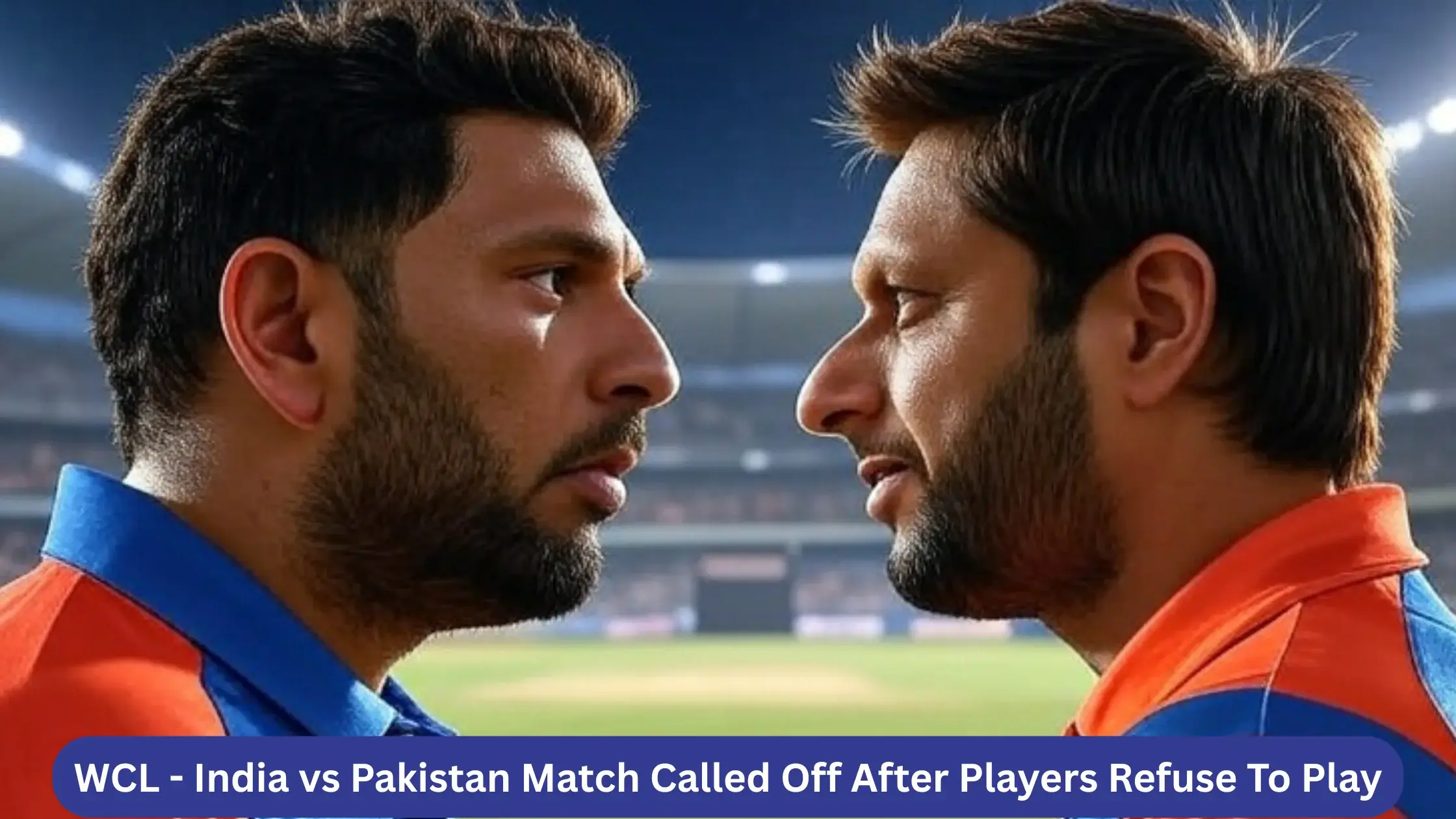The eagerly awaited cricket match between India and Pakistan in the World Championship of Legends (WCL), slated for today, July 20, 2025, has been officially cancelled. This significant development stems directly from the steadfast refusal of several prominent Indian cricketing legends to participate, citing heightened geopolitical tensions between the two nations, particularly in the aftermath of the harrowing Pahalgam terror attack and subsequent ‘Operation Sindoor’. The decision has sent ripples across the cricketing world, once again highlighting the complex interplay of sports and politics in the subcontinent.
Indian Stalwarts Prioritize National Sentiment
The list of Indian cricketers who withdrew from the WCL fixture against Pakistan are Shikhar Dhawan, Suresh Raina, Harbhajan Singh, Irfan Pathan, and Yusuf Pathan. Their collective decision was not taken lightly, but rather as a principled stand in light of the volatile bilateral relations.
Shikhar Dhawan, a vocal advocate for his country, underscored his position on the social media platform X, stating, “Jo kadam 11 May ko liya, uspe aaj bhi waise hi khada hoon. Mera desh mere liye sab kuch hai, aur desh se badhkar kuch nahi hota (The decision I took on May 11, I stand by it even today. My country means everything to me, and nothing is above the nation).”
This powerful sentiment was not a spur-of-the-moment reaction but a reiteration of a stance he had conveyed to the WCL organizers as early as May 11, 2025. In an email sent on that date, Dhawan’s team formally communicated his refusal to participate in any matches against the Pakistan team in the WCL due to “the current geopolitical situation and the prevailing tensions between India and Pakistan.”
Jo kadam 11 May ko liya, uspe aaj bhi waise hi khada hoon. Mera desh mere liye sab kuch hai, aur desh se badhkar kuch nahi hota.
— Shikhar Dhawan (@SDhawan25) July 19, 2025
Jai Hind! 🇮🇳 pic.twitter.com/gLCwEXcrnR
This principled stance by the Indian legends resonated deeply with a significant section of the Indian public. Social media platforms, which had initially seen criticism directed at Indian players for even considering playing against Pakistan in a tournament of this nature, quickly transformed into a platform for commendation and support for their decision. The growing public sentiment, coupled with the players’ firm resolve, left the WCL organizers with no viable alternative but to cancel the marquee fixture.
Pahalgam Terror Attack and ‘Operation Sindoor’: The Catalyst
The immediate trigger for this heightened sensitivity and the players’ withdrawal can be directly traced back to the brutal terror attack in Pahalgam, Jammu and Kashmir, on April 22, 2025. This horrific incident, which claimed the lives of 26 civilians, sent shockwaves across India and further strained diplomatic ties with Pakistan.
In response to this barbaric act, India launched ‘Operation Sindoor’ on May 7, 2025. This was a calibrated, tri-services military response aimed at dismantling terror infrastructure across the Line of Control and deeper inside Pakistan.
The timing of the WCL match, coming relatively soon after such a significant and sensitive military response, inevitably collided with national emotions and patriotic sentiments, making participation for the Indian players untenable.
Also Read: What is The World Championship of Legends and Who Owns the WCL?
WCL Organizers’ Apology and the “Bharat First” Stance
In the aftermath of the cancellation, the WCL organizers issued a public apology, acknowledging the “emotional distress caused” and expressing regret for “hurting public sentiment and causing discomfort to Indian cricket legends.” They explained that their initial decision to schedule the India-Pakistan game was inspired by recent sporting exchanges between the two nations in other sports, such as a recent India-Pakistan volleyball match and the anticipated visit of the Pakistan hockey team to India. The intention, they stated, was to “create happy memories for fans.” However, they conceded that the announcement had “ended up hurting the feelings of many and stirring emotions.”
Further compounding the pressure was the strong stance taken by key sponsors. EaseMyTrip, a prominent Indian travel-tech company and an official sponsor of the WCL, publicly reiterated its “Bharat First” policy. In a statement on X, EaseMyTrip clarified that despite a five-year sponsorship agreement with WCL, their position had always been clear: “EaseMyTrip will not be associated with or participate in any WCL match involving Pakistan.” This bold declaration by a major corporate entity underscored the commercial implications of crossing national sentiment in such matters.
The Larger Implications for India-Pakistan Cricket
The cancellation of the WCL match serves as a potent reminder of the fragility of sporting ties between India and Pakistan, which remain deeply intertwined with the prevailing geopolitical landscape. Bilateral cricket series between the two nations have been virtually non-existent for over a decade due to political tensions. Their encounters are largely confined to multilateral tournaments organized by the International Cricket Council (ICC) and the Asian Cricket Council (ACC).
Looking ahead, the next potential India-Pakistan clash is expected in the Asia Cup, tentatively scheduled for September 2025 in the United Arab Emirates (UAE). India was initially slated to host this edition, but due to geopolitical considerations and Pakistan’s participation, it was moved to a neutral venue. Furthermore, the T20 World Cup, where India is also a host, is another potential stage for this high-octane rivalry.
However, even participation in these ICC and ACC events remains subject to governmental clearances from both sides. While India’s Union Sports Minister Mansukh Mandaviya recently stated that India has “no problem playing Pakistan in international tournaments where multiple countries are involved” and confirmed that India would grant visas to Pakistani teams for upcoming hockey tournaments, the final decision for cricket rests with the respective governments and cricket boards.
The WCL cancellation, despite being an exhibition tournament involving retired players, sends a clear message about the unwavering influence of national sentiment on sporting decisions. The global cricketing fraternity will continue to watch with bated breath to see if and when these two passionate cricketing nations can put aside political differences for the love of the game on the international stage.
